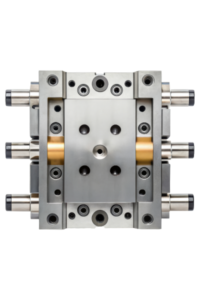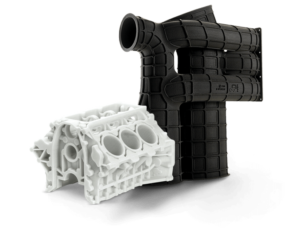In the world of manufacturing, the term “low volume contract manufacturing” is gaining significant attention. Businesses are realizing the advantages it offers for producing smaller quantities of precision-engineered products. Let’s take a closer look at the many benefits that come with this approach.
Cost Savings:
Low volume contract manufacturing reduces overhead costs and minimizes the need for large inventories. This results in cost savings for businesses.
Waste Reduction:
With a focus on producing only what’s needed, waste is significantly reduced. This not only benefits your bottom line but also has a positive environmental impact.
Customization and Adaptability:
Low volume manufacturing allows for tailored solutions. Whether you require unique components or adaptations to existing designs, this approach can accommodate your specific needs.
Quality Assurance:
Rigorous quality control measures are implemented to maintain high standards in low volume manufacturing. Every product is meticulously inspected to ensure it meets specifications.
Quick Turnaround:
Agility is a hallmark of low volume contract manufacturing. Businesses can swiftly respond to changing market demands, ensuring products reach consumers faster.
Niche and Specialized Products:
Low volume manufacturing is the ideal choice for niche or specialized products that may not justify large-scale production.
End-to-End Solutions:
Many low volume contract manufacturers offer end-to-end solutions, simplifying the entire production process for businesses.
Examples of Low Volume Manufacturing Success:
Case Study 1: Medical Prototyping Production
This case study showcases the journey of AliMed, a medical equipment manufacturer, as they transitioned from prototyping to production for their specialized ankle support product. Facing the challenges of small-scale production and a complex design, AliMed leveraged Quickparts’ low-volume manufacturing expertise. Through a collaborative approach, Quickparts helped AliMed streamline the manufacturing process, resulting in cost-effective, high-quality medical devices. This case study demonstrates the advantages of low-volume manufacturing, enabling medical companies to bring innovative products to market efficiently while maintaining quality and cost control. Learn more
Case Study 2: Aviation Industry
This case study explores the collaboration between Gogo Business Aviation, a leading provider of in-flight connectivity solutions, and Quickparts. The focus of the partnership was on rapid prototyping for aviation Wi-Fi components. Notably, the responsibility for ensuring quality and precision components fell on the subcontractor, Quickparts, which meant they carried the associated risks. Given the small volumes required for the project, this arrangement proved to be highly advantageous. By leveraging Quickparts’ expertise in 3D printing and rapid prototyping, Gogo Business Aviation was able to accelerate their product development timeline. This case study underscores the vital role of rapid prototyping in aviation technology innovation, allowing companies like Gogo to swiftly develop and test cutting-edge aviation Wi-Fi solutions, ensuring passengers stay connected while in the air. Learn more


